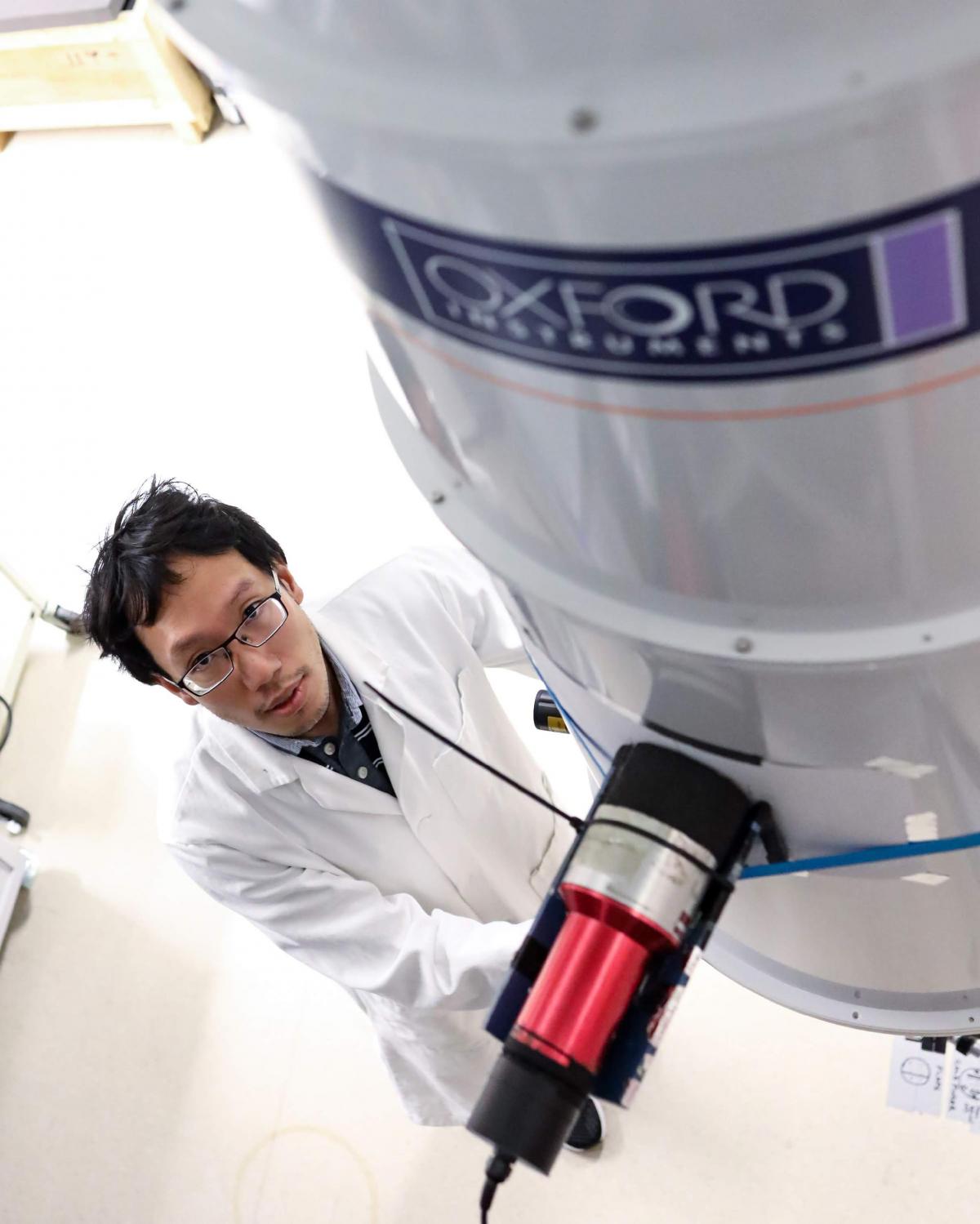Applications
 Part of the Oxford Instruments Group
Part of the Oxford Instruments Group
Expand
Collapse
Ahead of the webinar on Optical Investigation of Quantum Spin Liquid Candidates and Toward Quantum Enhanced Optical Sensing with Oxford Instruments Andor, we briefly caught up with Dr Yun-Yi Pai from the Oak Ridge National Laboratory. He earned his PhD in Physics from the University of Pittsburgh in 2020 on superconductivity of strontium titanate in reduced dimensions. He went on to the Oak Ridge National Laboratory as a postdoctoral research associate, studying quantum materials with optical or transport measurement, and instrumentation toward quantum-enhanced sensing with squeezed light.
One could say I have been a long-time Oxford Instruments customer. Since 2013, I was working with Asylum MFP-3D and accumulated more than 800 hours, and Cypher from the Asylum Research division. The first Oxford Instruments NanoScience instrument I used was a Mercury iPS. This was back in 2014, so I’ve been an Oxford Instruments group customer for 9 years, and particularly NanoScience for 8 years.
We are currently working with two instruments from Oxford Instruments. An Oxford Instruments NanoScience Triton with 14T magnet, and an Oxford Instruments Andor Camera with Kymera Spectrograph.
As you can imagine we are somewhat limited in how much detail we can share considering most are ongoing research projects. However, more broadly I can share that we have a broad range of projects like transport and quantum transport for film and devices and superconducting nanowire single photodetector (jitter, s-parameters, etc.).
We are also working on (field-dependent) Raman for materials such as quantum spin liquid candidates and (instrumentation) quantum-enhanced sensing with squeezed light.

I have to say that the Oxford Instruments Triton that we are working with has been very reliable. In comparison to other dilution refrigerators that I’ve worked with over the years, the Triton has been nearly trouble-free.
In a last year’s project titled “Multifunctional Superconducting Nanowire Quantum Sensors”, now published in Physical Review Applied, we succeeded in demonstrating that superconducting nanowire single-photon detectors (SNSPDs) can be used as sensors for magnetic field or temperature. This is an unconventional use case for SNSPD, which is used for single-photon detection normally because of their wide optical band response (commonly easily visible to telecom), short dead time and low timing uncertainty (typically tens of picoseconds) and nearly unity quantum efficiency.
More recently, we also published a theoretical paper in Advanced Quantum Technologies titled “Magneto-Optical Sensing Beyond the Shot Noise Limit”, in which we used two-mode squeezed light (one of non-classical state of light) for magneto-optical based measurement on a generic material of interest. We showed that it is possible to exploit the quantum nature of squeezed light and obtain better best-case sensitivity, given the same probing optical power at the sample. This is useful for our instrumentation when, for example, the sample has low damage threshold, or inside a dilution refrigerator when cooling power is limited.
We are quite excited about these recent results: Phonon Chirality Induced by Vibronic-Orbital Coupling (https://arxiv.org/abs/2203.13361).
Many thanks to the team from Oxford Instruments NanoScience - Nick Dent, Xin Zhang, Dave March, Adam Wise from Oxford Instruments Andor and Mike Holmstrom from Oxford Instruments Asylum Research. Also many thanks to Zac Ward at ORNL for granting me access to the instruments.
Even though Dr. Yun-Yi works with an Oxford Instruments NanoScience Triton that is no longer in production, the Proteox builds on the success and quality of the Triton system and is our next-generation dilution refrigerator. The Oxford Instruments Andor webinar with Dr Yun-YI takes place tomorrow, June 28 2022, and there is still time to register here: https://register.gotowebinar.c...